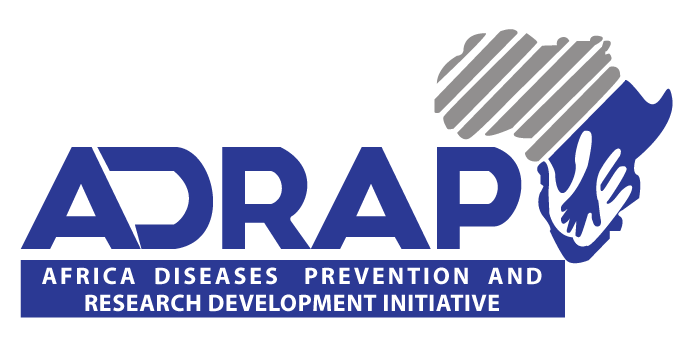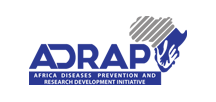AFRICA DISEASE REPORTING FELLOWSHIP
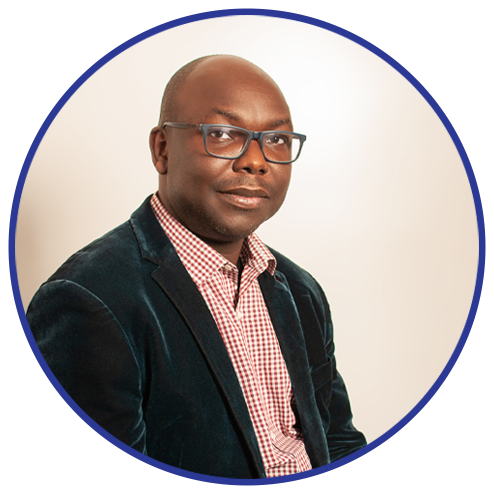
Odoh Diego Okenyodo
Passionate about driving positive change through strategic communication, Odoh Diego Okenyodo is a seasoned development communication expert with a proven track record of leadership achievements. He is the founder of Isu Media Ltd and the CEO of Akweya TV Limited, successfully establishing himself as a visionary in the field, dedicated to transforming the landscape of participatory communication in Africa.
Odoh demonstrates a deep understanding of the power of media to shape opinions, mobilise communities, and drive sustainable development. With Isu Media Ltd, he has spearheaded innovative communication strategies for international development organisations, amplifying their impact and facilitating effective engagement with local communities. Isu Media is a trusted partner for numerous NGOs, government agencies, and private sector entities, delivering impactful campaigns that address critical social issues.
He is the founder of Akweya TV Limited, a development-focused broadcast station that empowers voices from across Africa. By providing a platform for participatory communication, AkweyaTV fosters dialogue, highlighted pressing challenges, and showcases inspiring stories of change.
Okenyodo has a passion for leveraging media as a force for good extends beyond the borders of Africa. He is committed to becoming a global leader in participatory communication, driving positive change on a larger scale. He recently joined the faculty of the West Africa Broadcast and Media Academy (WABMA), helping to build the capacity of future leaders in the industry.
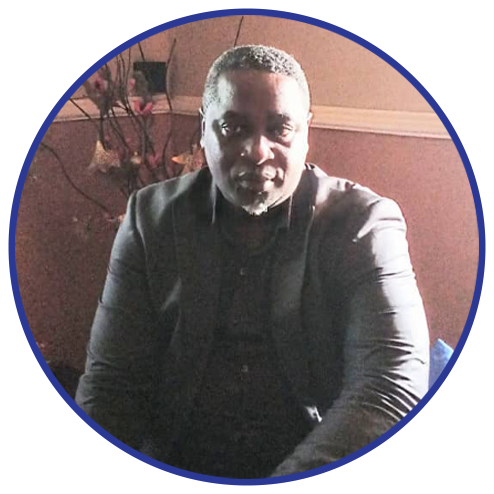
Onche Odeh
A past fellow of the Massachusetts Institute of Technology (MIT)’s Knight Science Journalism programme and Woodshole Institute of Oceanography (WHOI) both in the United States of America and former Editor of Sunday Independent is Managing Editor with Africa STI News (afticasti.net) with over two decades of field reporting and editing experience. He has written and coordinated the production of stories on health, Science, Environment, Industry, Agriculture, Politics, and general news in local and international platforms, including Scidev.net of London, Nature Africa. His stories have also featured in BBC Focus Magazine, Mail & Guardian, among others. At different times, he has has worked closely with some development agencies like UNICEF, UKAid, EU, among others, helping them with field documentations and facilitation of Media engagements. He holds a Bachelors Degree in Biology, Diploma in Science Journalism and certificate in Online Science Journalism obtained from the World Federation of Science Journalists (WFSJ) under the Science Journalism Cooperation (SJCoop) programme.
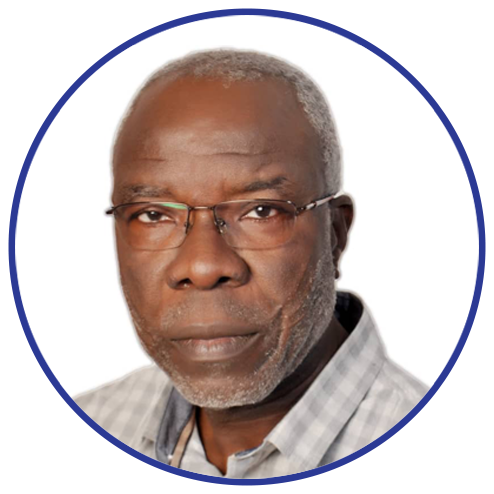
Oga Steve Abah, Ph.D.
Oga Steve Abah is a Professor of Theatre for Development and Participatory Development Methods Drama and Theatre for Development at Ahmadu Bello University, Zaria, Nigeria where he has taught since 1979. He was the Head of the Department of English and Drama from April 1993 to January 1996. He served as the Director of the Institute for Development Research (IDR), Ahmadu Bello University, Zaria from 2006-2010. His areas of specialization are in Theatre for Development and Participatory Development Approaches. He has written and published several articles in his areas of specialization. The interest for Oga Abah is the interplay between the classroom and the field, between theory and practice, and it is in these interrogative approaches that he has made his mark as a scholar, trainer and field worker.
Perhaps what defines his career most appropriately is that he has been a bridge between town and gown such that the ivory tower bends to listen to the village; he domesticates academic knowledge to attend to the needs of poor community members in both rural and urban locations. In the quest to make development work for the poor, Professor Abah has led the Nigerian Popular Theatre Alliance in the last 34 years to traverse the country from Borno to Plateau, from Kebbi to Kano, from Katsina to Kaduna, Benue to Bayelsa and from Delta and Lagos to Rivers. In criss-crossing the country in search of development, rights and justice, Professor Abah has used theatre to make voices heard; to ensure that people’s self-esteem is built and the need for transparent and accountable government has been thrown in the open. But he acknowledges that there is more to do before the goal is reached.
Professor Abah has been involved in NGO activities since 1980 and is a member of several organizations which include: The Nigerian Popular Theatre Alliance (for which he is Executive Director), Nigerian Participatory Action Research Network (Founding Member and Premier Chairperson) and Second Chance Organization of Nigeria (Programme Advisor). He is a founding member of the Association of African Theatre for Development Practitioners. He is also a member of several learned and professional academic societies such as the Society of Nigerian Theatre Artists (SONTA) for which is a Fellow. He is also a Fellow of the Chicago Humanities Institute, University of Chicago, U.S.A. Other professional Associations he belongs to are the International Drama/Theatre in Education Association (IDEA) and African Studies Association (ASA). He is also a founding member of the Nigerian Popular Theatre Association.
He has served as a Resource Person for the Presidency on Community Theatre and as a member of the World Bank-UNICEF-UNDP Committee on Poverty Alleviation. Abah has consulted for DFID and the MacArthur Foundation. He led the Nigerian team in the ten-year collaborative research project on ‘Citizenship, Participation and Accountability’ between the Development Research Centre, Institute of Development Studies (IDS), University of Sussex, UK and eight other countries (Angola, Bangladesh, Brazil, Mexico, India, South Africa, UK). Professor Abah has coordinated the Ford Foundation-sponsored project ‘Changing Games: Democracy and Good Governance’ which lasted from 1999 to 2005. The project took place in various parts of the country. He also has experience in health communication, and coordinated a MacArthur Foundation sponsored anti-AIDS campaign in various parts of Northern Nigeria from 1994-1999; Adolescent Sexuality project funded by the Big Lottery (UK) from 2002-2004.
In his years as a Lecturer at Ahmadu Bello University, Zaria, Professor Abah’s administrative contribution included being Head of Department, English & Drama (1994 to 1996), (Director, Institute of Development Research (2016 to 2010), Director, University Advancement (2013 to 2015) and Coordinator, MacArthur Projects Management Committee (2006 to 2015).
Between 2010 and 2012, Professor Abah led the Partnership for Transforming Health Systems (PATHS2) ‘Community Sentinel Monitoring’ in Enugu, Jigawa, Kano and Kaduna States to apply the theory of change technique to development and organizational planning as techniques for communities to demand transparency and accountability in health care delivery.
Professor Abah whose work is known and respected internationally has travelled widely and resourced and workshops in a number of countries such as Bangladesh, Britain, Burkina Faso, Brazil, Canada, Eswatini (Swaziland), Germany, Ghana, India, Jamaica, Mexico, Mauritius, South Africa and Zimbabwe. He has taught in the United States and the United Kingdom.
He has won a number of scholarly awards and honours which include:
- Commonwealth Scholar, University of Leeds, U.K., 1984-87
- International Visitor, United States Information Agency (October 1990)-To visit Theatres, Directors and Playwrights in Washington, D.C., New York and Yale, Connecticut
- Fulbright Scholar in Residence, Colorado College, Colorado Springs,
U.S.A. (1994)
- Leventis Foundation Research Fellow, School of Oriental and African Studies, (SOAS), University of London, U.K. (1995)
- Zora Neale Hurston Fellow, Northwestern University, Evanston, U.S.A. (April 1996)
- Visiting Fellow (in Theatre for Development), King Alfred’s College, Winchester, U.K. (January – July, 1996).
- International Scholar in Residence, Colorado College, Colorado Springs, U.S.A. (September- October, 1996).
- Rockefeller Fellow, Chicago Humanities Institute, University of Chicago, Chicago, U.S.A. (April- June, 1997).
- Appointed Research Associate, School of Oriental and African Studies (SOAS), University of London, U.K. (2000 – 2002).
- British Council Visiting Fellow to SOAS, 2000-2003
- Listed in Marquis ‘Who is Who in the World’ – Millennium Edition – as Renowned Educator
- November 29, 2001: Honoured as Fellow of the Society of Nigerian Theatre Artists (FSONTA).
- Visiting Research Fellow, Institute of Development Studies, University of Sussex, U.K. (March – June, 2003)
- Nigeria Country Coordinator of a research (2001 – 2010) on ‘Inclusive Citizenship, Participation and Accountability’, a DFID-sponsored project in seven countries and coordinated from the Institute of Development Studies (IDS), University of Sussex, U.K.
Overall, Professor Abah is an action researcher with specializations in:
- Participatory Learning and Action (PLA)
- Theatre for Development
- Development/Social Change Communication
BA (Hons) Drama (Ahmadu Bello University, Zaria, Nigeria
MA (Drama) – Ahmadu Bello University, Zaria, Nigeria
Ph.D. (Leeds) Theatre for Development & Development Communication
Certificate- Donor-funded Projects (Development Training Institute, Mbabane, Eswatini (Swaziland)
And, Abah insists he is still a learner!
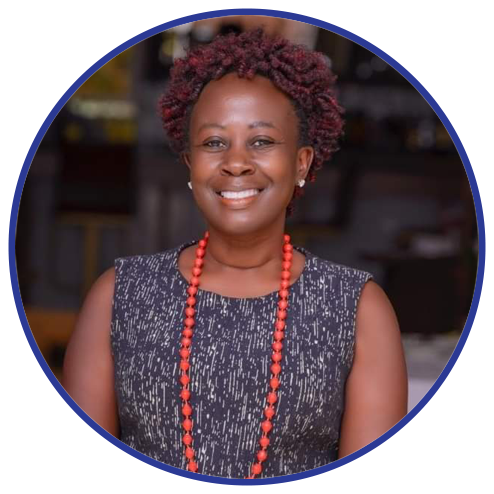
Esther Nakkazi
Esther Nakkazi, a graduate of Makerere University in Uganda and a health and science reporter based in Kampala, Uganda, founder of the Health Journalists Network in Uganda (HEJNU –www.hejnu.ug) is a media trainer who specializes in mentorship for journalists in science reporting.
She was a mentor and trainer in the science journalism mentoring program of the World Federation of Science Journalists, Science Journalism Cooperation Programme (SJCooP). She contributes to several media outlets around the world, including Nature, The Lancet, Scidev.net, among others.
She holds a post-graduate degree from the Uganda Management Institute. She won a Knight Science Journalism Fellowship to spend the 2007-08 year at Harvard and MIT in Cambridge, and was a journalist in residence at the Institute of Tropical Medicine in Antwerp in 2016. She is also a 2020 Chevening Africa Media Freedom Fellowship fellow.
